Today’s investigation turns face into the creamy world of mayonnaise, and the specific condiment of choice is Kepwie Mayo — the beloved Japanese brand often praised for its rich, umami taste.
But what about the dairy content of this popular condiment? For those with dietary restrictions, a dairy allergy, those driven by sheer curiosity or planning on a creative ingredient substitution, it’s essential to know what’s inside the almost-diamond-shaped bottle of mayo you have on the dining table.
In this article, we will investigate the composition of Kewpie Mayo’s and find out if dairy (and other ingredients like MSG, raw eggs, sugar and alcohol are a part of it).
We’ll also discuss whether kewpie Mayo is vegan friendly, halal or suitable for the kosher diet.
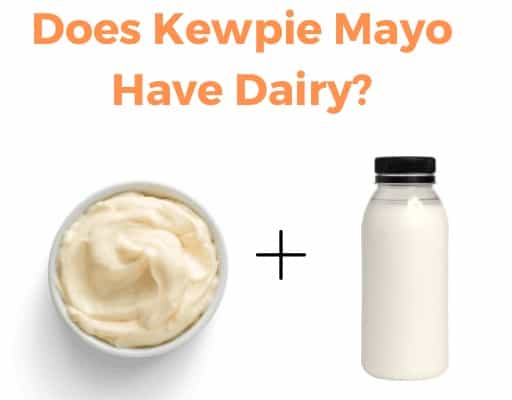
Is Kewpie Mayo Dairy Free?
Dairy refers to products derived from the milk of mammals such as cows, goats and sheep.
It includes a variety of food items like milk itself, butter, yogurt and cheese.
Dairy products often contain lactose which is a natural sugar found in milk that nearly half the American population find it difficult to digest, and proteins like casein and whey.
When it comes to Kewpie Mayo, it is completely dairy-free. Its main ingredients are vegetable oil vinegar and egg, just like you would find in other mayonnaise and the creaminess is the result of using too much yolks than the standard Mayo pack you’ll find in America.
Kewpie Mayo does not contain any milk, cheese, or other dairy-derived ingredients which makes it perfectly suitable for those with lactose intolerance or a milk allergy, or those following a dairy-free diet like vegetarians.
Does Kewpie Mayo Have The Following Ingredients:
MSG
Yes, Kewpie Mayo (with the exception of the American product) contains monosodium glutamate (MSG).
MSG is the sodium salt of glutamic acid, an amino acid that is naturally present in many foods like tomatoes and mushrooms.
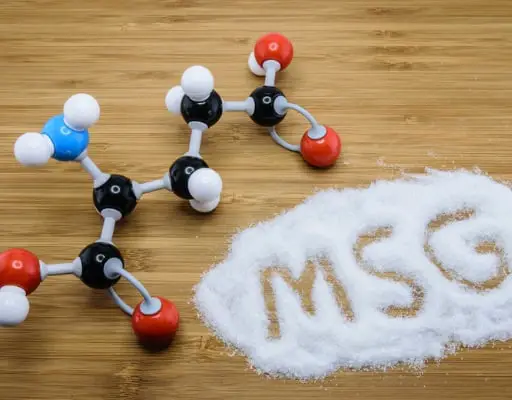
It was first discovered in 1908 by a Japanese scientist named Kikunae Ikeda, who derived it from seaweed.
Nowadays, MSG is primarily produced through the fermentation of starch, using microorganisms similar to those used in making wine, yogurt and vinegar.
MSG is a common food additive used as a flavor enhancer to intensify the umami taste in various dishes making them more flavorful and appetizing.
In Kewpie Mayo, the addition of MSG contributes to the unique taste that sets it apart from other mayonnaise brands.
Controversies surrounding MSG (in the United States) mainly stem from anecdotal reports of adverse reactions, collectively referred to as the “Chinese Restaurant Syndrome.”
Symptoms allegedly include numbness of neck, arms and back, headaches, dizziness and other discomforts after consuming food in Chinese restaurants who are typically fond of seasoning their foods with MSG.
These reports led to widespread concern and skepticism about the safety of MSG.
However, extensive scientific research has not found any consistent evidence linking MSG consumption to these reported symptoms or other adverse health effects.
Multiple regulatory agencies, including the US Food and Drug Administration (FDA), the European Food Safety Authority (EFSA), and the United Nations’ World Health Organization (WHO) have deemed MSG safe for human consumption, but of course, like any other ingredients, at moderate amounts.
Raw Egg
Kewpie Mayo uses only yolks, which are pasteurized meaning they have been treated with heat to eliminate harmful bacteria such as Salmonella which ensures the Mayo is safe for consumers.
Kewpie mayo, aside pasteurization, also conduct thorough testing and research of the eggs to be used in their recipe to ensure it delivers the right flavor and consistency.
The use of egg yolk, and only egg yolk, in Kewpie Mayo contributes to its rich, creamy texture and distinct flavor and color.

Egg yolk acts as an emulsifier, (with more of it emulsifying more) helping to blend the oil and water in vinegar into a stable, smooth mixture that forms the mayonnaise.
Sugar
The original Japanese Kewpie Mayo does not contain sugar, however, the blue mayonnaise marketed to other Asian countries like Thailand, China and Vietnam alongside the Product USA does contain some quantity of sugar in the form of white sugar, synthetic sweeteners like sucralose 955 and fructose syrup.
Contrary to the popular believe, sugar is often added to mayonnaise not only to add sweetness but to balance out the flavors of other ingredients by providing a slight sweetness that complements them.
The sugar content in Kewpie Mayo is generally low, except for the blue products marketed in some Asian countries (like the Salad Cream Line” in Thailand) where the sugar content can clock about 24% of the overall mixture, so it should not be a significant concern for most consumers.
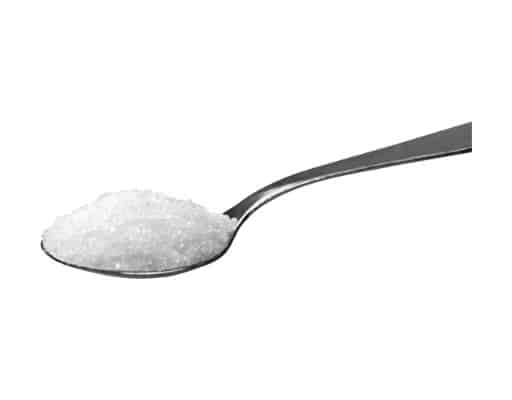
It is still essential to be aware of the presence of sugar for those monitoring their sugar intake due to health or dietary reasons.
Alcohol
Kewpie Mayo does not contain alcohol as a distinct ingredient.
However, it does contain vinegar, which is a key component in the mayonnaise recipe.
Vinegar is made through the fermentation of ethanol (alcohol) by bacteria, which convert the alcohol into acetic acid, giving vinegar its characteristic tangy flavor.

While the process of making vinegar involves alcohol, the final vinegar product contains only trace amounts of this alcohol, typically less than 0.5%.
This negligible amount of alcohol is not considered significant and does not contribute to any intoxicating effects.
Soy
Kewpie Mayo contains soy in the form of soybean oil.
Soybean oil is one of the primary ingredients in Kewpie Mayo and serves as the base for the emulsion which forms the mayo.
The oil contributes to the smooth, creamy texture of the mayonnaise and is a source of fat that provides flavor and mouthfeel.
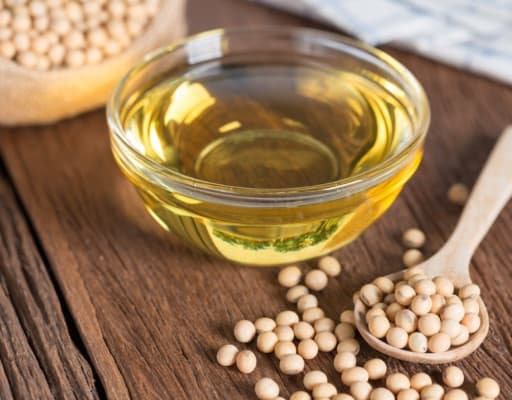
For those with soy allergies or sensitivities, it’s important to take note of the soy-derived ingredients of kewpie Mayo and opt for an alternative mayonnaise like those made with oils such as canola, avocado or olive oil.
Gluten
The original Japanese Kewpie Mayo, the Vegan Mayo, the Product of the USA as well as many other lines of Kewpie mayo marketed in other Asian Countries do not contain any form of wheat.
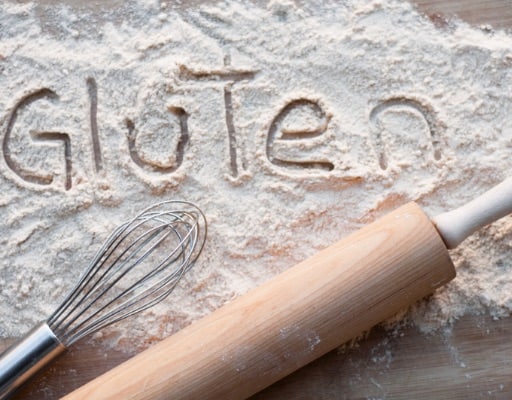
However, The European version does contain gluten in the form of barley, so also the light and heavy version of the Salad Cream Line offered in Thailand.
Because there are variation, it is essential to always check the product label and consult the manufacturer if you have concerns about gluten content.
For individuals with celiac disease or gluten sensitivity, it’s important to look for certified gluten-free products or contact Kewpie to confirm the gluten-free status of their products in your region.
Is Kewpie Mayo Vegan?
No, Kewpie Mayo is not vegan.
Even though it does not contain any dairy ingredients, it includes egg yolk, which is an animal-derived product.
Veganism involves avoiding the consumption of all animal products and by-products, including eggs.

For individuals seeking a vegan alternative to traditional mayonnaise, Kewpie offers a Vegan Product which uses plant-based ingredients to replicate the taste and texture of the original mayonnaise.
This specific line caters to vegans, as well as those with egg allergies or sensitivities.
Is Kewpie Mayo Kosher?
Kewpie Mayo (Vegan) and Product of USA are all certified kosher and gluten free. For other markets and lines however, there isn’t a label indicating that, and thus it’s safe to assume they aren’t.
Is Kewpie Mayo Halal?
Kewpie Mayonnaise produced in Malaysia is halal, but it’s not clear if the rest of the Kewpie Mayo produced elsewhere is halal.
In general, Kewpie mayonnaise itself does not contain pork, alcohol or any product that is deemed haram in Islam, which are major factors in determining if a product is halal or not.
However, it does contain egg, which is halal as long as it is derived from a halal source i.e chickens or other poultry animals.

The main concern when determining if the rest of the Kewpie mayonnaise produced in other countries are halal would be the source and processing of its ingredients, as well as any potential cross-contamination during production.
Since kewpie Mayo does not indicate on their packaging (for other countries) whether or not their products are halal, and it is quite impossible to figure out if that is so without first hand experience at the production line, it’s best to communicate with the company to figure that out for yourself.
What Allergens Are In Kewpie Mayo?
Kewpie mayonnaise contains three primary allergens.
- Egg
- Soy
- Wheat
Other potential allergens could be present in trace amounts due to manufacturing processes or as ingredients in flavorings, additives or stabilizers.
So always review the product label for allergen information and consult with a healthcare professional if you have concerns about a specific allergy.
How Many Calories Does Kewpie Mayo Have?
The calorie content in Kewpie mayonnaise can vary slightly depending on the specific product and its ingredients. However, on average, Kewpie mayonnaise has around 100 calories per tablespoon (about 14 grams) which is similar to the calorie content of most other mayonnaise brands like Hellman’s or Dukes.

